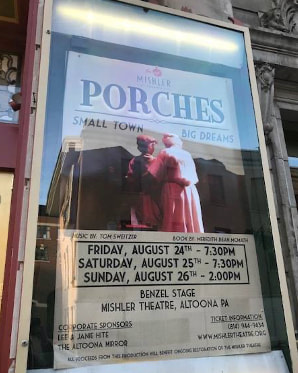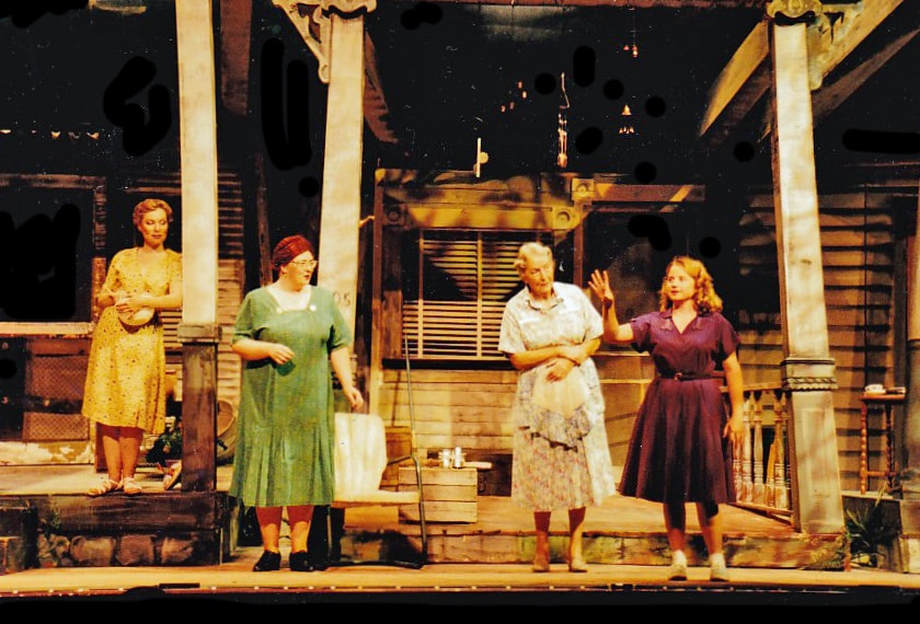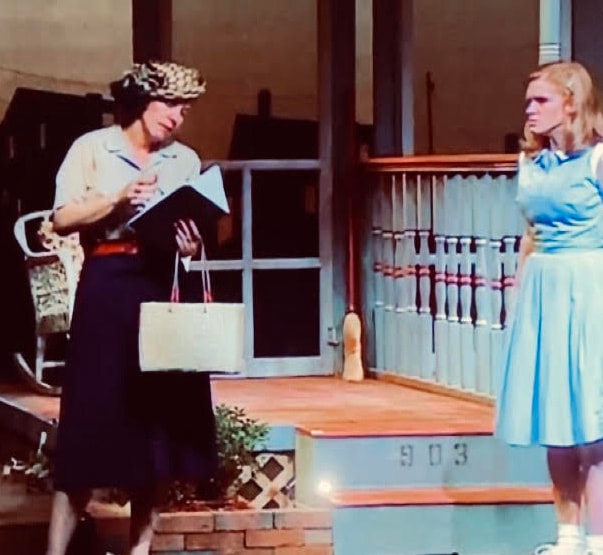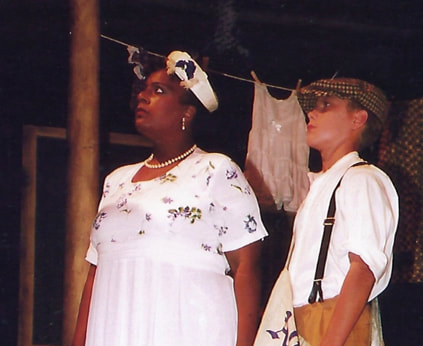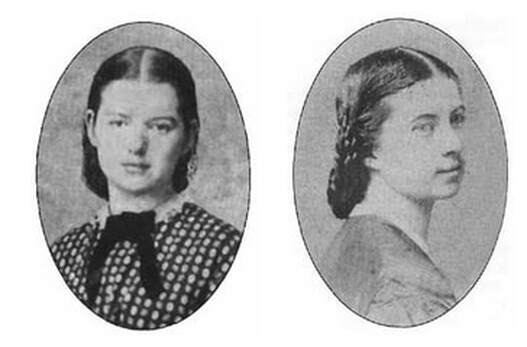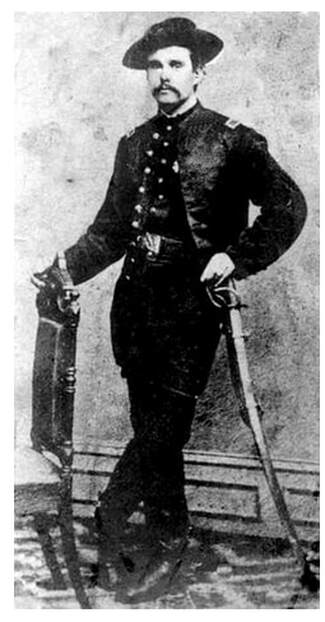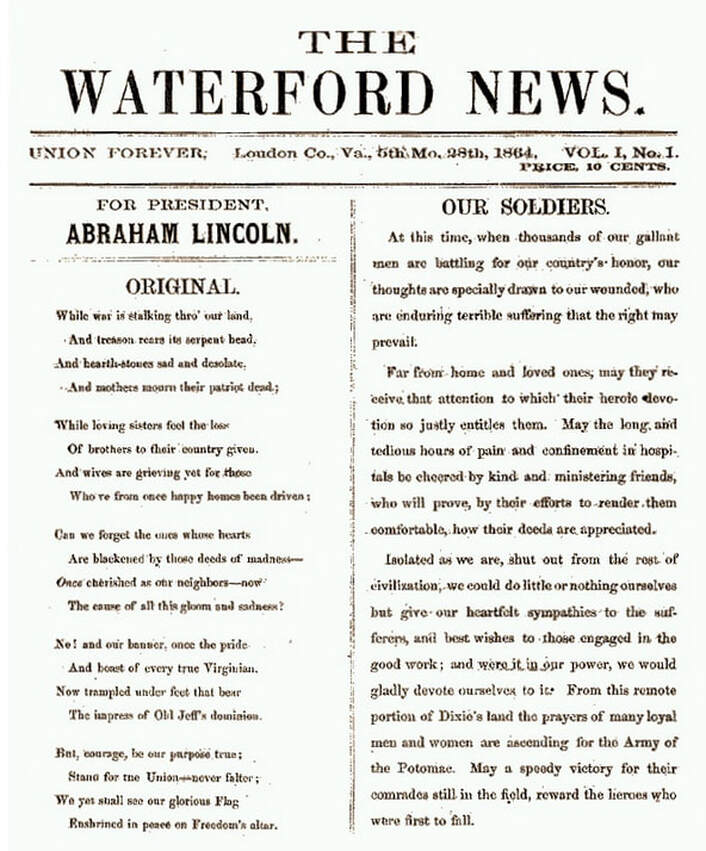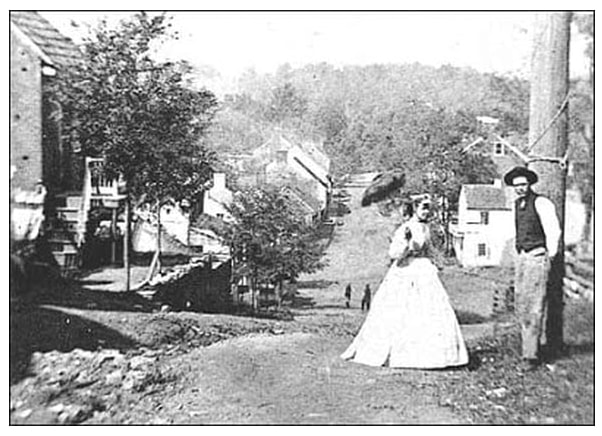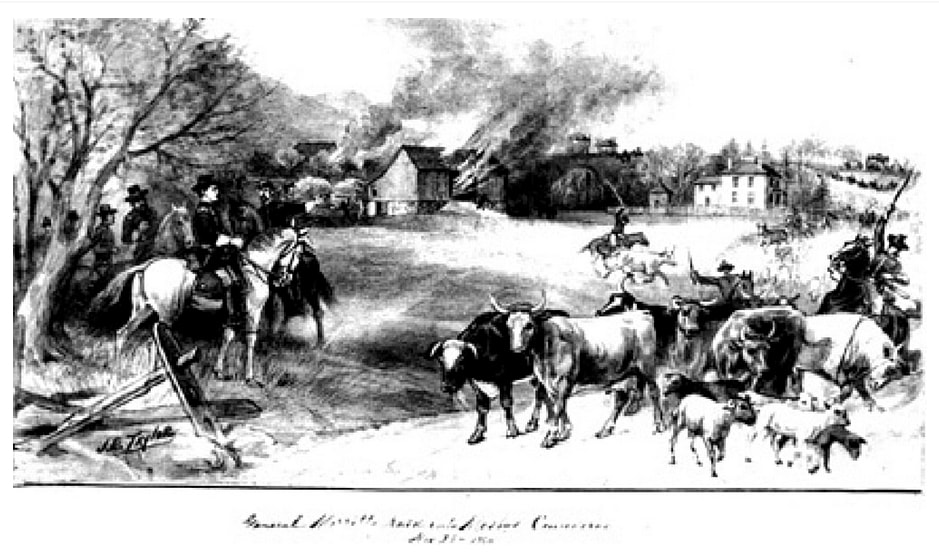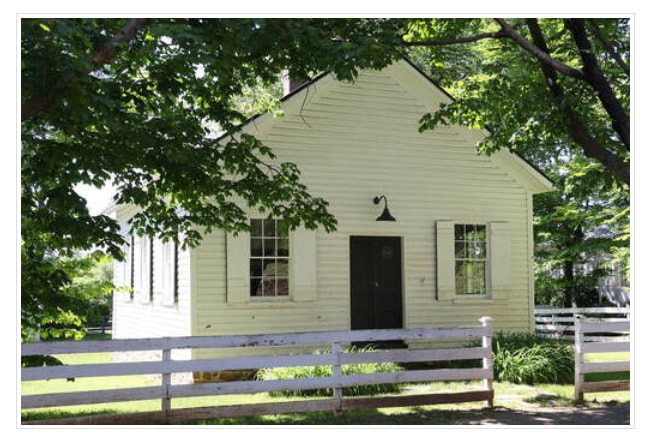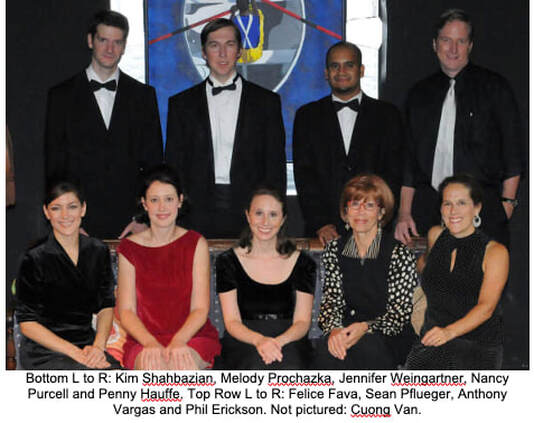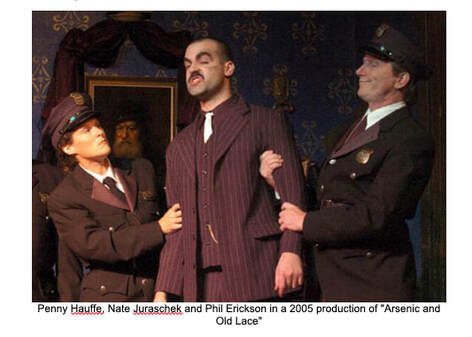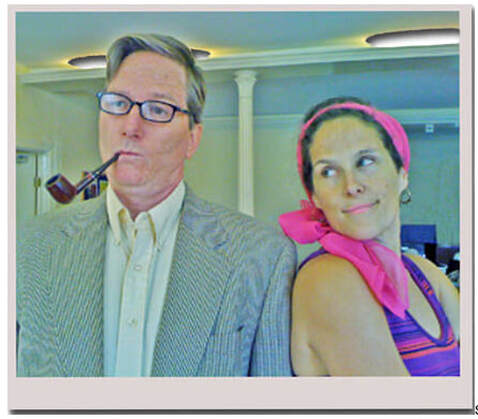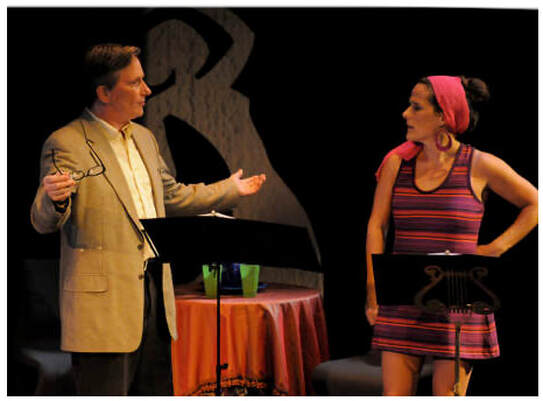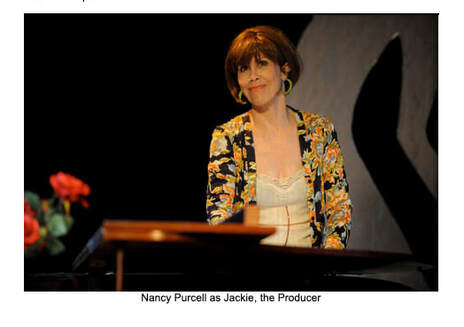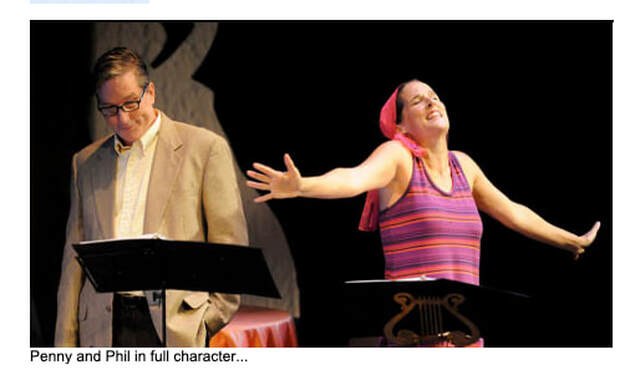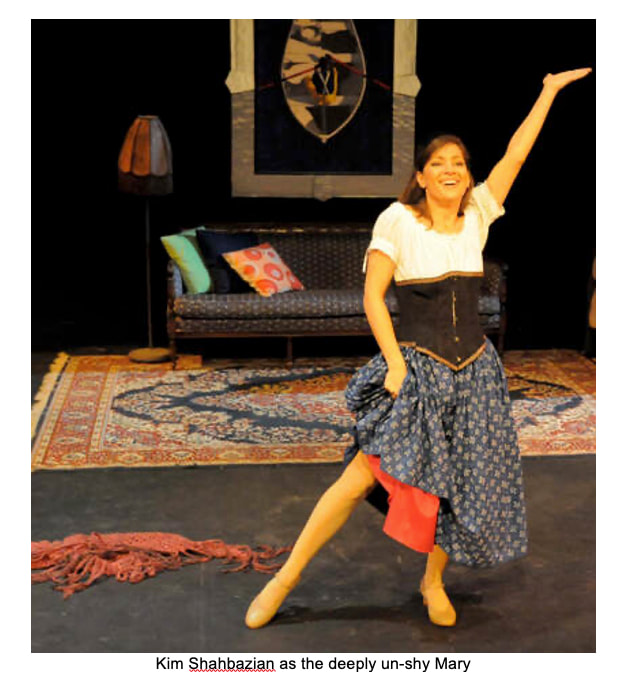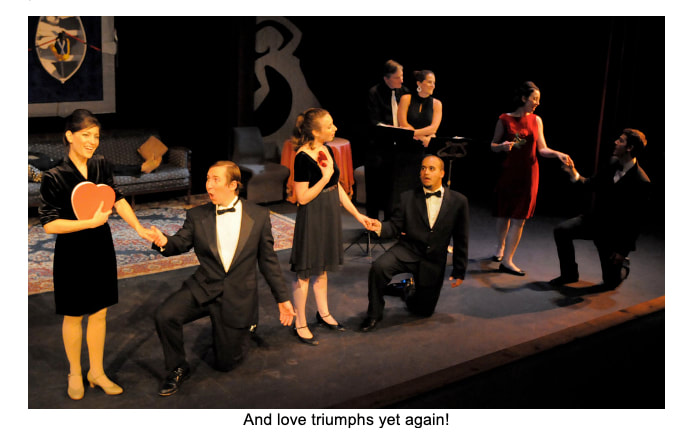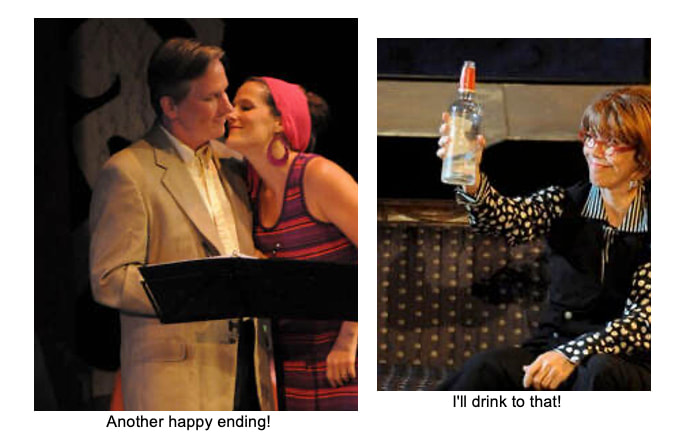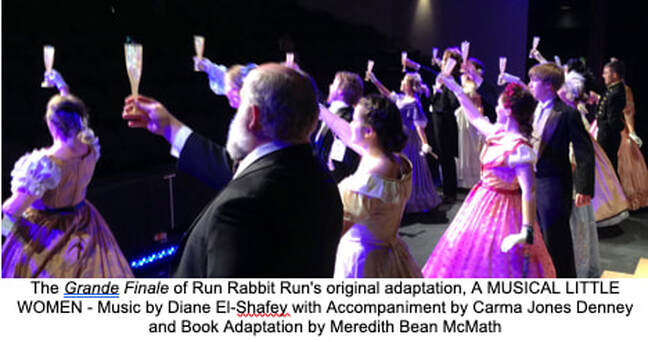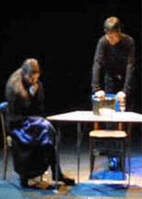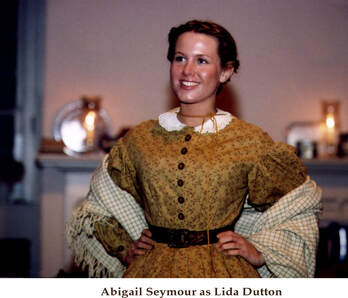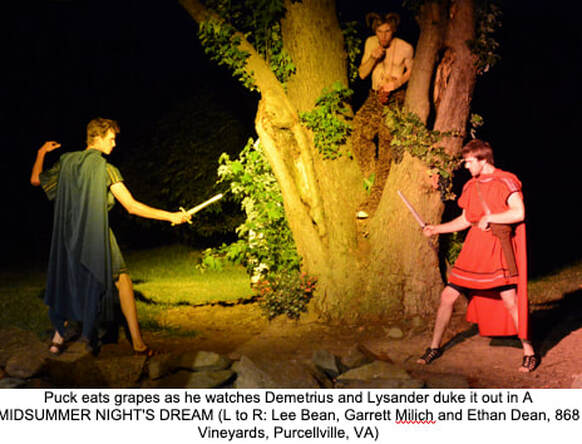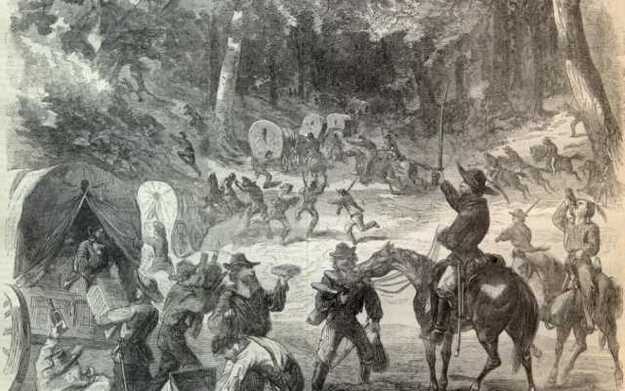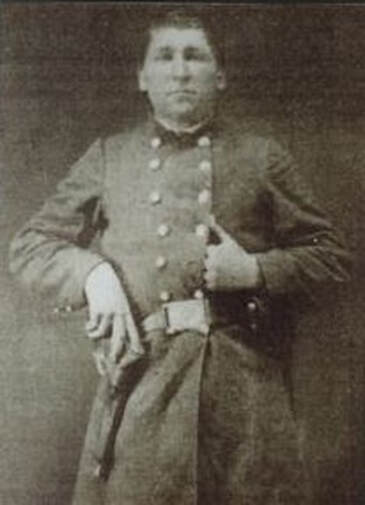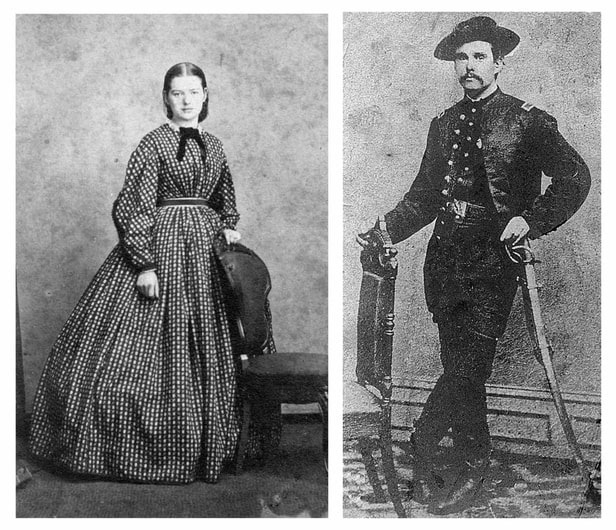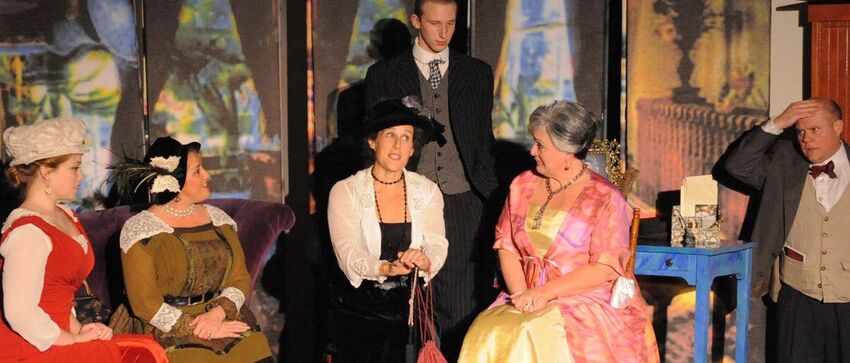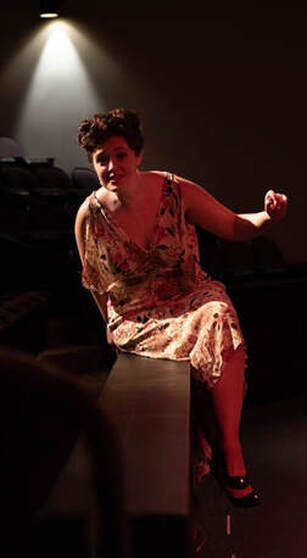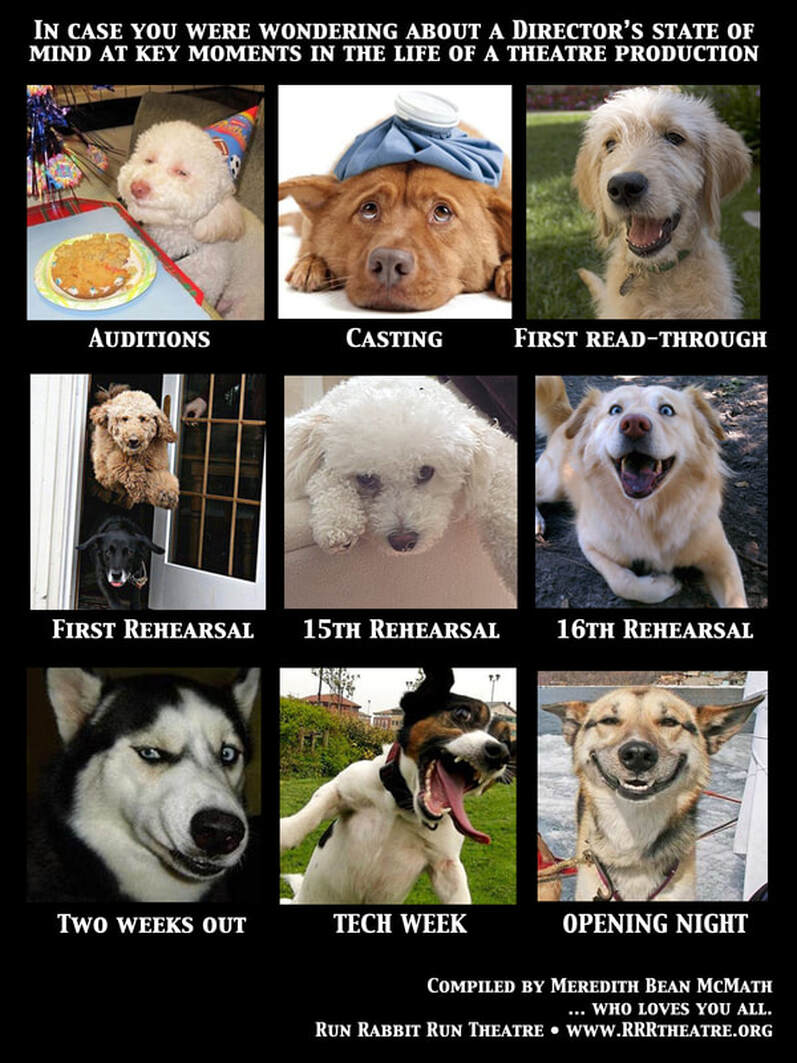0 Comments
Wanted -- |
| Researching for all of the above led me to begin writing plays in earnest, and my works now include original modern and historical dramedies and comedies, and the writing of books and librettos for operas. I also became a prize-winning playwright, an award-winning historian, stage director and speaker. |
"One passion kept leading to another. I'm deeply grateful for the talented people I've worked with and for all the opportunities I've been given, but I do wish writers and directors were paid a little more..."
So... is it time to explain that name, Run Rabbit Run?
In 1998, my friend Joni Lynn Crane and I began to create history documentaries and museum public programs. Accurate historic “pretending” was our game, and… well, we didn’t have a name.
But while we were creating that first documentary, we heard a story from the Battle of Gettysburg. A group of Confederate soldiers were hunched down along a ditch, waiting for the call to charge across the battlefield. Most knew this battle was the end of the line - for the war, and very possibly themselves. As they waited, tense and exhausted, a large hare ran swiftly along the line. Each man turned their heads as it ran past, and then everything grew silent... until an old man spoke up and quietly said: “Run, Hare, Run… If I were a hare I’d run, too".
The story struck us profoundly, and we wanted to name our production company after the tale (the tail?). So, we were going to be Run Hare Run Productions, Inc.
And right away people told us the name was too hard to remember, so we compromised and came up with Run Rabbit Run Productions, Inc.
And we knew we had a lucky rabbit when our first documentary was accepted by - and aired on - The History Channel several times (This was just after Ken Burns' Civil War Series).
So... is it time to explain that name, Run Rabbit Run?
In 1998, my friend Joni Lynn Crane and I began to create history documentaries and museum public programs. Accurate historic “pretending” was our game, and… well, we didn’t have a name.
But while we were creating that first documentary, we heard a story from the Battle of Gettysburg. A group of Confederate soldiers were hunched down along a ditch, waiting for the call to charge across the battlefield. Most knew this battle was the end of the line - for the war, and very possibly themselves. As they waited, tense and exhausted, a large hare ran swiftly along the line. Each man turned their heads as it ran past, and then everything grew silent... until an old man spoke up and quietly said: “Run, Hare, Run… If I were a hare I’d run, too".
The story struck us profoundly, and we wanted to name our production company after the tale (the tail?). So, we were going to be Run Hare Run Productions, Inc.
And right away people told us the name was too hard to remember, so we compromised and came up with Run Rabbit Run Productions, Inc.
And we knew we had a lucky rabbit when our first documentary was accepted by - and aired on - The History Channel several times (This was just after Ken Burns' Civil War Series).
Then in 2010, I pulled a theatre company out of the Rabbit's hat, my musical friends Diane El-Shafey and Carma Jones Denney joined me, and Run Rabbit Run suddenly meant “Energizer Bunny”.
Our goal was to create great entertainment in Loudoun County, Virginia and the DC / Metro area with veteran actors, new performers and technical crew who were:
1. Extremely talented and creative;
2. Aimed for professional-level work;
3. Knew how to have fun doing all of the above.
As Managing Producer and Director From 2010 to 2020, I averaged 2-3 productions a year of dinner theatre shows ranging from classics to modern works, original stage plays to original musicals and adaptions, plein-air Shakespeare to two Capital Fringe Festival productions, and offered youth to adult acting classes and programs through libraries, schools and museums.
Along the way, Run Rabbit Run won awards, excellent reviews and full houses. In short, we successfully pretended for ten years
Our goal was to create great entertainment in Loudoun County, Virginia and the DC / Metro area with veteran actors, new performers and technical crew who were:
1. Extremely talented and creative;
2. Aimed for professional-level work;
3. Knew how to have fun doing all of the above.
As Managing Producer and Director From 2010 to 2020, I averaged 2-3 productions a year of dinner theatre shows ranging from classics to modern works, original stage plays to original musicals and adaptions, plein-air Shakespeare to two Capital Fringe Festival productions, and offered youth to adult acting classes and programs through libraries, schools and museums.
Along the way, Run Rabbit Run won awards, excellent reviews and full houses. In short, we successfully pretended for ten years
The other day a good friend asked me what my Focal Seizures are like, and it occurred to me I’ve never blogged about the experience. If you, a friend or a relative has Epilepsy, this might be worth your time. Here goes…
My Grand Mal seizures are under control through medication, but the Focal Seizures get me now and then. When they come, I feel like my conscious mind is floating away from my head. I can actually feel my thoughts detaching from my present self - flying like winged angels - and in short order, I’m won't to able to think clearly or speak clearly..
The worse one I've had was a time I blacked out, Felt my thoughts leaving and got to a cushioned chair in the nick of time. When my husband came home, my eyes were open and I spoke to him - told him about my day. He said I made no sense. I don't remember any of this, but eventually thoughts became clearer.
For all my other Focals, I’ve been awake and aware the whole time. And when I feel that detachment happening, I begin to talk to myself and take deep breaths and ask myself who I am, where I live, what day it is… that sort of thing. This helps me stay calm, but it doesn’t stop the seizure. And within a minute, I won’t be able to make sense. Eyes open, speaking... but making no sense. And then I just have to patiently wait until my brain gets back in order.
Whole process used to terrify me, but, these days, I find it interesting and try to learn as much about Epilepsy as I can.
My Grand Mal seizures are under control through medication, but the Focal Seizures get me now and then. When they come, I feel like my conscious mind is floating away from my head. I can actually feel my thoughts detaching from my present self - flying like winged angels - and in short order, I’m won't to able to think clearly or speak clearly..
The worse one I've had was a time I blacked out, Felt my thoughts leaving and got to a cushioned chair in the nick of time. When my husband came home, my eyes were open and I spoke to him - told him about my day. He said I made no sense. I don't remember any of this, but eventually thoughts became clearer.
For all my other Focals, I’ve been awake and aware the whole time. And when I feel that detachment happening, I begin to talk to myself and take deep breaths and ask myself who I am, where I live, what day it is… that sort of thing. This helps me stay calm, but it doesn’t stop the seizure. And within a minute, I won’t be able to make sense. Eyes open, speaking... but making no sense. And then I just have to patiently wait until my brain gets back in order.
Whole process used to terrify me, but, these days, I find it interesting and try to learn as much about Epilepsy as I can.
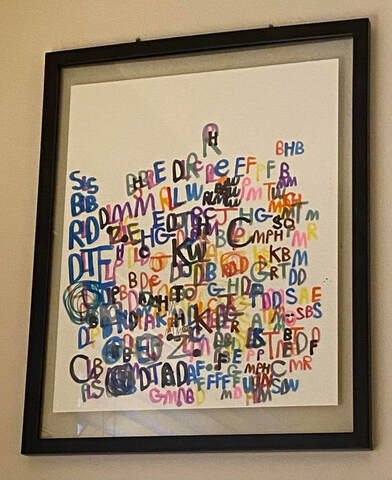
In my particular case, Focal seizures develop in my brain’s left Frontal Lobe - the home of memory and verbal ability, among other things. My Neurologist learned this for certain after I had a 3-day EEG at Fairfax Hospital, Fairfax, Virginia.
He explained that, as my seizure begins, my brain waves become more and more agitated (see image below) which makes it more and more difficult for parts of my brain to communicate with each other. For instance, we have a place in our brain that holds words and an area that creates sentences. When the brain waves between those two go crazy (those big spikes on the EEG), I suddenly can’t make sense.
Above is a piece of art that now sits over my desk. This struck me as the perfect image of the difficulty I have finding words and forming sentences when my brain is agitated (The art piece was created by Griffin Caton, a DaVinci Art student. DaVinci is an offshoot of Arts for All - Loudoun here in Virginia. AFA has been providing theatre and art programs for people with special needs for over 33 years).
I’ve had Epilepsy for 6 years now, and am thankful I rarely have seizures any more. To avoid them I not only serious anti-seizure medications but I've also had to close my business and be very careful about taking on stressful situations. I have to be careful, because seizures - especially Grand Mals (now called Tonic-Clonics) - do serious damage to long and short-term memory. I’m thankful I’m a writer and took “notes” on my life. I have good days and bad days - days I can remember the name of my first grade teacher and days I can’t remember what I did that morning.
But back to the Focal Seizures: they don’t last long - 30 minutes to an hour, tops.
Then I try to figure out why I had them:
Next up, I get to tell my Neurologist what happened, and he decides whether to see me this time. Lastly, I get to count off 6 months on my calendar before the state of Virginia will let me drive again (Very glad we live in a walk-able neighborhood within a mile of grocery stores, restaurants and Cornwall Medical Facility).
He explained that, as my seizure begins, my brain waves become more and more agitated (see image below) which makes it more and more difficult for parts of my brain to communicate with each other. For instance, we have a place in our brain that holds words and an area that creates sentences. When the brain waves between those two go crazy (those big spikes on the EEG), I suddenly can’t make sense.
Above is a piece of art that now sits over my desk. This struck me as the perfect image of the difficulty I have finding words and forming sentences when my brain is agitated (The art piece was created by Griffin Caton, a DaVinci Art student. DaVinci is an offshoot of Arts for All - Loudoun here in Virginia. AFA has been providing theatre and art programs for people with special needs for over 33 years).
I’ve had Epilepsy for 6 years now, and am thankful I rarely have seizures any more. To avoid them I not only serious anti-seizure medications but I've also had to close my business and be very careful about taking on stressful situations. I have to be careful, because seizures - especially Grand Mals (now called Tonic-Clonics) - do serious damage to long and short-term memory. I’m thankful I’m a writer and took “notes” on my life. I have good days and bad days - days I can remember the name of my first grade teacher and days I can’t remember what I did that morning.
But back to the Focal Seizures: they don’t last long - 30 minutes to an hour, tops.
Then I try to figure out why I had them:
- Too much stress today? Have to look over my responsibilities.
- Low salt? That can happen, because I have Hyponatremia.
- Loss of the anti-seizure med’s effectiveness? Yes, if I’ve been sick and been… unable to retain things.
Next up, I get to tell my Neurologist what happened, and he decides whether to see me this time. Lastly, I get to count off 6 months on my calendar before the state of Virginia will let me drive again (Very glad we live in a walk-able neighborhood within a mile of grocery stores, restaurants and Cornwall Medical Facility).
Now, let's talk about the strange subset of my new life: memory loss.
The oddly good news is that I can enjoy things over and over again. "I love this movie!" I tell my husband. "Have I seen it before?" "Yep. Just last weekend." Grateful for his love and patience.
But I realized something else the other day... something strangely amazing: having someone tell me I’ve forgotten things does not come with the sort of sorrow I'm certain I used to feel. An example would be the normal sadness over having a good friend move away. In the old days, I would miss a friend as I thought back over all the good times, how great she was to be with, and all the things we did together that we won’t be able to do again.
Seizures have wiped clean most of those memories. So odd.
Now, over time certain memories may return in full or in part, and there are times when someone talks about an event, and pieces of it will come back to me. But when they don’t come back at all, well… I simply can’t miss what I can’t recall.
I go through old family photos and see that I’ve been to wonderful places, but in most, the details are gone – often no idea where, when or with whom they were taken. So, the photos themselves become the only memory. And the only thing I can be sad about is being told what fun we had.
But I'll add that I have to tell people this is not Alzheimer’s or Dementia. This is not a slow decay. The memory damage is done during a seizure and uncontrolled seizures will do more damage, so I stick to the medications and change doctors when they do a lousy job. And that’s why I will constantly say, “Find a good Neurologist, and do what they say, because deciding to handle Epilepsy on your own is incredibly dangerous”.
The oddly good news is that I can enjoy things over and over again. "I love this movie!" I tell my husband. "Have I seen it before?" "Yep. Just last weekend." Grateful for his love and patience.
But I realized something else the other day... something strangely amazing: having someone tell me I’ve forgotten things does not come with the sort of sorrow I'm certain I used to feel. An example would be the normal sadness over having a good friend move away. In the old days, I would miss a friend as I thought back over all the good times, how great she was to be with, and all the things we did together that we won’t be able to do again.
Seizures have wiped clean most of those memories. So odd.
Now, over time certain memories may return in full or in part, and there are times when someone talks about an event, and pieces of it will come back to me. But when they don’t come back at all, well… I simply can’t miss what I can’t recall.
I go through old family photos and see that I’ve been to wonderful places, but in most, the details are gone – often no idea where, when or with whom they were taken. So, the photos themselves become the only memory. And the only thing I can be sad about is being told what fun we had.
But I'll add that I have to tell people this is not Alzheimer’s or Dementia. This is not a slow decay. The memory damage is done during a seizure and uncontrolled seizures will do more damage, so I stick to the medications and change doctors when they do a lousy job. And that’s why I will constantly say, “Find a good Neurologist, and do what they say, because deciding to handle Epilepsy on your own is incredibly dangerous”.

So, that’s my life, but every person with Epilepsy is completely unique and the list of reasons for seizures seem infinite (Which is why we have to be our own best advocates): examples include being born with it or developing it due to brain injuries or a tumor, having an inability to manage stress, chronic low salt (Hyponoatrermia) or having an auto-immune disease (My auto-immune disease may have been why it showed up… or it just showed up at a moment in my life when my brain suddenly decided it wouldn’t handle stress anymore).
And there are at least 15 different types of seizures, which are based on where the seizure activity occurs in the brain. After a 3-day EEG at Fairfax Hospital, my Neurologist knew mine developed in my left Frontal Lobe - which is why my memory and speech are affected.
And alllllll those pieces of the puzzle affect what medication/s work - IF the doctors can find the right med for you. The first medicine I was given stopped the Grand Mals (now called Tonic Clonic seizures, by the way), but it caused me to have severe mood swings. Second med gave me a severe rash that began to close my throat. Then came the one I’m on now. It gives me headaches and itchy rashes, but with a little Tylenol ant-itch creams, I’m set. And I’m deeply thankful this med works, because there are no other effective medications for me… at this time (Yay, for research!).
My Neurologist also suggested my memory loss and verbal ability would improve if I could lose weight back to my ideal weight (which I very nearly have) and get regular exercise (which is why I walk at least 30 minutes a day). He was absolutely right.
And, thanks to my Neurologist, the amazing people at Johns Hopkins and my friends and family, I’m still here.
Nobody wanted to be a burden. We didn’t count on having Epilepsy, but we do have to count on the nature of love.
When they say they can deal with it with no problem, we have to love them enough to believe them. I’m in a happy marriage, but he has to constantly reassure me I’m not a burden. It’s hard. But I realize if he had been the one in this situation, I would have no trouble loving him and doing whatever was necessary. So the next job I have is to believe I’m worthy of the same love I have for him.
PS: If you’ve gone to med school and have 20 years or more experience in Neurology with a focus on Epilepsy, happy to hear medical advice. Otherwise, Nope.
PPS: And, no, marijuana does not help my form of Epilepsy, lol…
And there are at least 15 different types of seizures, which are based on where the seizure activity occurs in the brain. After a 3-day EEG at Fairfax Hospital, my Neurologist knew mine developed in my left Frontal Lobe - which is why my memory and speech are affected.
And alllllll those pieces of the puzzle affect what medication/s work - IF the doctors can find the right med for you. The first medicine I was given stopped the Grand Mals (now called Tonic Clonic seizures, by the way), but it caused me to have severe mood swings. Second med gave me a severe rash that began to close my throat. Then came the one I’m on now. It gives me headaches and itchy rashes, but with a little Tylenol ant-itch creams, I’m set. And I’m deeply thankful this med works, because there are no other effective medications for me… at this time (Yay, for research!).
My Neurologist also suggested my memory loss and verbal ability would improve if I could lose weight back to my ideal weight (which I very nearly have) and get regular exercise (which is why I walk at least 30 minutes a day). He was absolutely right.
And, thanks to my Neurologist, the amazing people at Johns Hopkins and my friends and family, I’m still here.
Nobody wanted to be a burden. We didn’t count on having Epilepsy, but we do have to count on the nature of love.
When they say they can deal with it with no problem, we have to love them enough to believe them. I’m in a happy marriage, but he has to constantly reassure me I’m not a burden. It’s hard. But I realize if he had been the one in this situation, I would have no trouble loving him and doing whatever was necessary. So the next job I have is to believe I’m worthy of the same love I have for him.
PS: If you’ve gone to med school and have 20 years or more experience in Neurology with a focus on Epilepsy, happy to hear medical advice. Otherwise, Nope.
PPS: And, no, marijuana does not help my form of Epilepsy, lol…
Can’t help but laugh every time I think on an actual conversation I once had with an actual Hollywood Producer. He was a huge Civil War buff and very interested in our Loudoun County, Virginia Civil War history... but he was also a part of the System, and he just couldn’t stop giving everything “The Hollywood Spin.”
The beginning of the end of this whirlwind of a conversation came when I tried to tell him the story of the Loudoun Rangers.
I told him that "As far as anyone knows, they were the only Union troop ever formed in Virginia. Captain Samuel Means formed the troop out of the sons of Quakers and German farmers with ties in Pennsylvania. Can you imagine? Quakers were anti-slavery (with a couple exceptions), and the rest were pro-slavery - but they'd all grown up together - worked alongside other boys in local businesses. Then came the war, and they go off and join separate armies.
“Good,” he says. “Good story tension.”
“Definitely! Loudoun was a deeply divided County, but mostly Confederate and the Rangers had a horrible time. They were always getting ambushed by the 35th Battalion — another local cavalry troop.”
“Okay, so you’ve got your under-dog theme going. Who could [INSERT NAME OF HOLLYWOOD ACTION HERO] play?”
“Oh! Uh, well... probably not Captain Means. He was older and married.” I brightened with a thought. “Actually there was a Drillmaster, Charles Webster; the Rangers liked him a lot. But he’d be an anti-hero, ‘cause no one was sure where he came from or what his real sentiments were....”
“Anti-hero is good. Everyone wants anti-heroes. Now, you've gotta’ have this guy be the Loudoun Ranger in charge - not necessarily in official charge, but the one who's the real leader of the men."
“Wellll, that's real. Everybody disliked Captains Means because he was too detached - never seemed to be around for the actual fight. So Webster became the natural leader.”
"Good, good," he says. "But there's got to be even more conflict in the actual troop. Like... Means should turn out to be working for the Confederacy..."
"Uh... um. Pardon? D’you... you mean as a spy? There was only one Union troop formed in Virginia — did I say that? — and he would never ever have considered —”
“This thing has to sell,” he said. “Needs more tension.”
“More tension? More tension.... Oh, I know! Can’t forget Sgt. Beatty! Actually, [insert current good guy action hero] could play Sgt. Beatty.”
“Who’s Beatty?
“The Loudoun Ranger that Confederate John Mobberly tried to kill. Mobberly was a boy the Confederates loved - a local legend - and he was one mean son of a gun. By the end of the war, even Confederates didn’t want anything to do with him. He shot Beatty, walked his horse over him, shot him again, then got off his horse and stole his boots.”
“Hmm. [INSERT NAME OF GOOD-GUY HOLLYWOOD ACTION HERO] might want to play Mobberly...”
“O-kay. He's playing bad guys now?”
“Oh, sure! He got tired of the good guy stuff. Boring.”
“I see. Well anyway, Beatty miraculously survived.”
“Survived what?”
“Mobberly almost killing him? And at the end of the war, he and two other Rangers and three citizens ambushed Mobberly in a barn and killed him. When Mobberly saw their faces right as they were about to shoot him, all he said was, 'Oh, Lord, I am gone.' And they blew him right off his horse. Pretty dramatic. I mean, can’t you just see that? A dark barn, a hay loft... and he sees Beatty’s face with the huge scar - the guy he’d tried so hard to kill.”
“Huhn.”
He clearly did not see it.
Then the producer says, "Now, what about the hero's love interest... Gotta have a love interest. You talked about a Quaker girl... journalist?”
I gulp. “You mean, Lida Dutton?”
“Yeah, yeah, Dutton. The one who wrote that... that thing... for Union soldiers.”
“The Waterford News?”
“Yeah. So Lida will be the love interest for this guy..."
“Beatty???” Having a hard time keeping my voice down.
"Yeah. The Captain.”
“Hmm. [INSERT NAME OF GOOD-GUY HOLLYWOOD ACTION HERO] might want to play Mobberly...”
“O-kay. He's playing bad guys now?”
“Oh, sure! He got tired of the good guy stuff. Boring.”
“I see. Well anyway, Beatty miraculously survived.”
“Survived what?”
“Mobberly almost killing him? And at the end of the war, he and two other Rangers and three citizens ambushed Mobberly in a barn and killed him. When Mobberly saw their faces right as they were about to shoot him, all he said was, 'Oh, Lord, I am gone.' And they blew him right off his horse. Pretty dramatic. I mean, can’t you just see that? A dark barn, a hay loft... and he sees Beatty’s face with the huge scar - the guy he’d tried so hard to kill.”
“Huhn.”
He clearly did not see it.
Then the producer says, "Now, what about the hero's love interest... Gotta have a love interest. You talked about a Quaker girl... journalist?”
I gulp. “You mean, Lida Dutton?”
“Yeah, yeah, Dutton. The one who wrote that... that thing... for Union soldiers.”
“The Waterford News?”
“Yeah. So Lida will be the love interest for this guy..."
“Beatty???” Having a hard time keeping my voice down.
"Yeah. The Captain.”
“Sergeant... Beatty?" I took a deep breath. “But.. Okay, here’s the thing: Lida and Lizzie DID fall in love and marry Union Lieutenants, but Lida married John Hutchinson of the 13th NY, and Lizzie married..."
"— Doesn’t matter, doesn’t matter. Y’know, we have a saying in Hollywood: Don't let the facts get in the way of a good story! Ha-ha-ha!"
"Guess I'm never gonna' make it in Hollywood,” I mumbled. But he was still talking.
“You’ve got to entertain the public, and history.... well, it’s just not that entertaining. Who’s gonna’ sit around watching the real thing crawl by?”
Then I lost it. “But what’s the point of bothering with history if it isn’t real? If you don’t know what people are actually capable of — the good and the bad — how can we learn anything? Unless we know the incredible evil we’re capable of, how can we ever hope to change? And how can we develop hope for the human condition unless we see real flesh and blood heroes?”
There was a momentary pause in the conversation, followed by hearty laughter.
And then he changed the subject. And at the end of our phone conversation, he said to be sure to send him the history of those Loudoun Rangers - What a great movie they’d make!
But the Loudoun Rangers are safe beside me in a file, and they won’t be heading for those California hills anytime soon. Hanging on to them just seems like the civil thing to do...
"— Doesn’t matter, doesn’t matter. Y’know, we have a saying in Hollywood: Don't let the facts get in the way of a good story! Ha-ha-ha!"
"Guess I'm never gonna' make it in Hollywood,” I mumbled. But he was still talking.
“You’ve got to entertain the public, and history.... well, it’s just not that entertaining. Who’s gonna’ sit around watching the real thing crawl by?”
Then I lost it. “But what’s the point of bothering with history if it isn’t real? If you don’t know what people are actually capable of — the good and the bad — how can we learn anything? Unless we know the incredible evil we’re capable of, how can we ever hope to change? And how can we develop hope for the human condition unless we see real flesh and blood heroes?”
There was a momentary pause in the conversation, followed by hearty laughter.
And then he changed the subject. And at the end of our phone conversation, he said to be sure to send him the history of those Loudoun Rangers - What a great movie they’d make!
But the Loudoun Rangers are safe beside me in a file, and they won’t be heading for those California hills anytime soon. Hanging on to them just seems like the civil thing to do...
Meredith Bean McMath is a Civil War Historian and the former Managing Director of Run Rabbit Run Theatre. Run Rabbit Run Productions. Her company has produced two Civil War documentaries... and she was kind of hoping this guy would turn out to be more of a HollyWHEN than a HollyWHAT? More on the amazing history of the Dutton sisters of Loudoun County, Virginia may be found HERE.
FOR COMEDIES OR DRAMAS Choose a one to two-minute monologue in the style of the play, and make certain it has a story arc (beginning, middle and ending) so you can show your range.
Note: Never memorize a monologue from the play being produced unless a director asks and avoid monologues requiring accents.
Next:
Practice, practice, practice... and then follow the format below. Paperwork: Whether auditioning by videotape or in-person, fill out the audition form carefully. You'd be surprised what details will catch a director's eye.
The Audition:
• If creating a video audition, send it in as soon as possible.
• If in-person, arrive a little early (actors can bow out and you'll be able to skip the line)
ADDITIONAL TIDBITS:
SHARPEN YOUR ACTING SKILLS LIKE A PRO EVERY DAY BY...
1. OBSERVING CHARACTERS, CHARACTERISTICS, AND SCENARIOS OF THOSE AROUND YOU - THE WAY PEOPLE WALK, SPEAK OR HAVE AFFECTATIONS, i.e an interesting walk, a voice, an odd laugh, or unusual mannerism.
2. KEEP NOTES OR A JOURNAL OF IMAGES, SOUND BYTES AND SENSORY EXPERIENCES THAT GRABBED YOUR ATTENTION.
3. A personal favorite: EVALUATE ACTORS WHEN YOU SEE A PLAY OR WATCH A FILM. ASK YOURSELF WHAT'S WORKING, WHAT ISN'T AND WHY?
Next:
Practice, practice, practice... and then follow the format below. Paperwork: Whether auditioning by videotape or in-person, fill out the audition form carefully. You'd be surprised what details will catch a director's eye.
The Audition:
• If creating a video audition, send it in as soon as possible.
• If in-person, arrive a little early (actors can bow out and you'll be able to skip the line)
ADDITIONAL TIDBITS:
SHARPEN YOUR ACTING SKILLS LIKE A PRO EVERY DAY BY...
1. OBSERVING CHARACTERS, CHARACTERISTICS, AND SCENARIOS OF THOSE AROUND YOU - THE WAY PEOPLE WALK, SPEAK OR HAVE AFFECTATIONS, i.e an interesting walk, a voice, an odd laugh, or unusual mannerism.
2. KEEP NOTES OR A JOURNAL OF IMAGES, SOUND BYTES AND SENSORY EXPERIENCES THAT GRABBED YOUR ATTENTION.
3. A personal favorite: EVALUATE ACTORS WHEN YOU SEE A PLAY OR WATCH A FILM. ASK YOURSELF WHAT'S WORKING, WHAT ISN'T AND WHY?
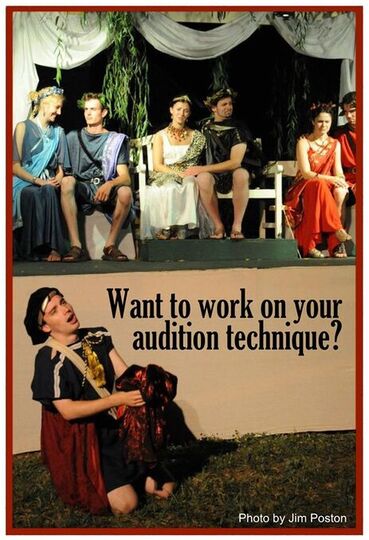
We know auditions are usually an actor’s LEAST favorite activity (Second only to Tech rehearsals that run past midnight).
So much pressure and anticipation.
Fear.
Confidence.
.... doubt!
EXCITEMENT!!!!
Terror...
Ego!!!
And that’s just the first 10 seconds in the waiting area…
But you should enjoy the audition process as much as is humanly possible!
So, after auditioning actors for more than 30 years, here’s a list of things I think you should know:
1. Directors are natural optimists, so we like you the second you walk in the door. Truth: no matter how distracted we, as Artistic Staff, may appear, we are always hoping you’re exactly what we’re looking for;
2. Auditions are more fun and a lot more successful when you come fully prepared. Really prepared. Ridiculously prepared. So learn the “Professional Audition Techniques” blog post. Follow them, and you can’t go wrong (with us or at any other company). Ignore the techniques, and you’ll spend the entire audition in an uphill battle to win our respect;
3. We look for actors who work well with others in creative collaboration. Yes, that’s unusual. We want actors to build and serve the story along with us. Input. Cooperation. Conversely, if you talk behind someone’s back or belittle someone’s idea, you’re gone;
4. If we are holding auditions, 95% of the time, no roles have been pre-cast. Exceptions occur when we are repeating a show or putting on a dinner theatre production. But, again, this is rare;
5. Probably obvious, but the more you audition, the easier it gets. Practice makes perfect… and less anxious; 6. If we believe you’re right for the role, you will be cast in the role. Doesn’t matter if we’ve known you for 30 years or 3 minutes, if it’s your first audition or you had the lead in our last show. We have a reputation for high quality theatre productions for good reason;
7. And what if you don’t get a role? This has zero effect on whether you’ll be cast next time you audition. Why? See No. 3. We take casting seriously, knowing it’s one of the most mentally and emotionally demanding duties we have, and we want you to know we spend a lot of time making our final choices;
8. It’s okay to ask why. In the end, we are very clear about why we think a certain person is either right for a role or is not a good fit for a particular production, and it may help you, as an actor, to know why we made a certain choice, so feel free to ask.
So look over these notes, and ENJOY YOUR NEXT AUDITION!
So, after auditioning actors for more than 30 years, here’s a list of things I think you should know:
1. Directors are natural optimists, so we like you the second you walk in the door. Truth: no matter how distracted we, as Artistic Staff, may appear, we are always hoping you’re exactly what we’re looking for;
2. Auditions are more fun and a lot more successful when you come fully prepared. Really prepared. Ridiculously prepared. So learn the “Professional Audition Techniques” blog post. Follow them, and you can’t go wrong (with us or at any other company). Ignore the techniques, and you’ll spend the entire audition in an uphill battle to win our respect;
3. We look for actors who work well with others in creative collaboration. Yes, that’s unusual. We want actors to build and serve the story along with us. Input. Cooperation. Conversely, if you talk behind someone’s back or belittle someone’s idea, you’re gone;
4. If we are holding auditions, 95% of the time, no roles have been pre-cast. Exceptions occur when we are repeating a show or putting on a dinner theatre production. But, again, this is rare;
5. Probably obvious, but the more you audition, the easier it gets. Practice makes perfect… and less anxious; 6. If we believe you’re right for the role, you will be cast in the role. Doesn’t matter if we’ve known you for 30 years or 3 minutes, if it’s your first audition or you had the lead in our last show. We have a reputation for high quality theatre productions for good reason;
7. And what if you don’t get a role? This has zero effect on whether you’ll be cast next time you audition. Why? See No. 3. We take casting seriously, knowing it’s one of the most mentally and emotionally demanding duties we have, and we want you to know we spend a lot of time making our final choices;
8. It’s okay to ask why. In the end, we are very clear about why we think a certain person is either right for a role or is not a good fit for a particular production, and it may help you, as an actor, to know why we made a certain choice, so feel free to ask.
So look over these notes, and ENJOY YOUR NEXT AUDITION!
